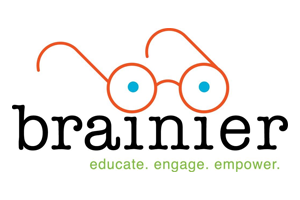In today’s business environment, where needs and roles are constantly shifting in an evolving market, the role of artificial intelligence (AI) in learning has become more prominent than ever before. In learning and development (L&D) the emergence of AI has brought with it a wave of opportunities, reshaping the way we approach training and development.
As a subject matter expert (SME) deeply entrenched in the realm of learning technology, I’ve witnessed firsthand the profound impact that AI has had on L&D, and I am thrilled to explore its possibilities for learners, trainers and content creators alike.
As a user navigating the vast amount of learning resources available, AI empowers individuals to embark on a learning journey tailored to their unique needs and career goals. By capturing essential user information such as current job roles, responsibilities and career ambitions, AI-driven LMS platforms can recommend personalized learning paths aligned with individual growth trajectories. Whether it’s identifying skill gaps, competency analysis, suggesting relevant courses, or providing insights based on pre- and post-training assessment scores, AI ensures that each learning experience is meaningful and impactful.
Generative AI capability within LMS can enable content creators, too. By leveraging AI-driven tools for role-play customization, prompt creation and output format selection, content creators can craft engaging, and interactive learning materials tailored to specific user personas and preferences. Furthermore, AI’s ability to summarize courses and provide refresher training ensures that content remains relevant and accessible, saving valuable time and resources.
Successful integration of AI into corporate LMS requires careful planning and strategic implementation. Key strategies for navigating AI integration in digital learning environments include:
- Data-driven Insights: Leverage learner data to identify patterns, trends, and learning gaps, enabling targeted interventions and content recommendations.
- Collaborative Filtering: Implement recommendation engines based on collaborative filtering algorithms to suggest relevant courses, resources, and learning pathways tailored to each learner’s interests and preferences.
- Adaptive Learning Paths: Design adaptive learning paths that dynamically adjust based on learner progress, performance, and feedback, ensuring a personalized and adaptive learning experience.
- Natural Language Processing (NLP): Integrate NLP capabilities to analyze and interpret learner interactions, enabling conversational interfaces, chatbots, and virtual mentors to enhance learner engagement and support.
- Algorithmic Insights: Delve into the underlying algorithms driving AI functionalities, elucidating how these algorithms optimize learning experiences and contribute to enhanced learner outcomes.
In addition to these benefits, AI in corporate LMS brings forth several tech-enabled advantages, including:
- Standardization: Bid farewell to inconsistency as AI maintains a uniform voice and format across all outputs based on uploaded style guides and templates.
- Speed: Blend speed and automation with AI’s repositories, facilitating swift AI-based automation for generating first-level output.
- Modularity & Enhanced Automation: Achieve versatility and scalability with different selectors for output, empowering AI to handle diverse conversations and communication needs.
- Quality Control: Generate quality content as AI’s processing engine ensures refined output meeting the defined standards.
- Process Efficiency: Streamline AI-based development, reducing the time required for first draft creation and minimizing steps involved in artifact creation.
- Time to Market: Gain a competitive edge with enhanced automation, reducing time to market for learning products and ensuring relevance in a rapidly evolving landscape.
The impact of AI on corporate LMSs extends beyond individual users and content creators to encompass the entire learning ecosystem. With features like localization and translation, AI-enabled platforms break down language barriers and facilitate global collaboration, opening up a world of possibilities for cross-cultural learning experiences. Additionally, AI-driven insights and recommendations based on job expectations, skills gap analysis, and career planning empower organizations to make data-driven decisions and drive continuous improvement in learning outcomes.
In essence, the integration of AI into corporate LMS represents a paradigm shift in the way organizations approach L&D. By leveraging the power of AI to craft personalized learning experiences for users, trainers, administrators and content creators alike, organizations can unlock untapped potential, drive innovation, and stay ahead of the curve in today’s dynamic business environment.
With AI, the future of corporate learning is brighter than ever before.








